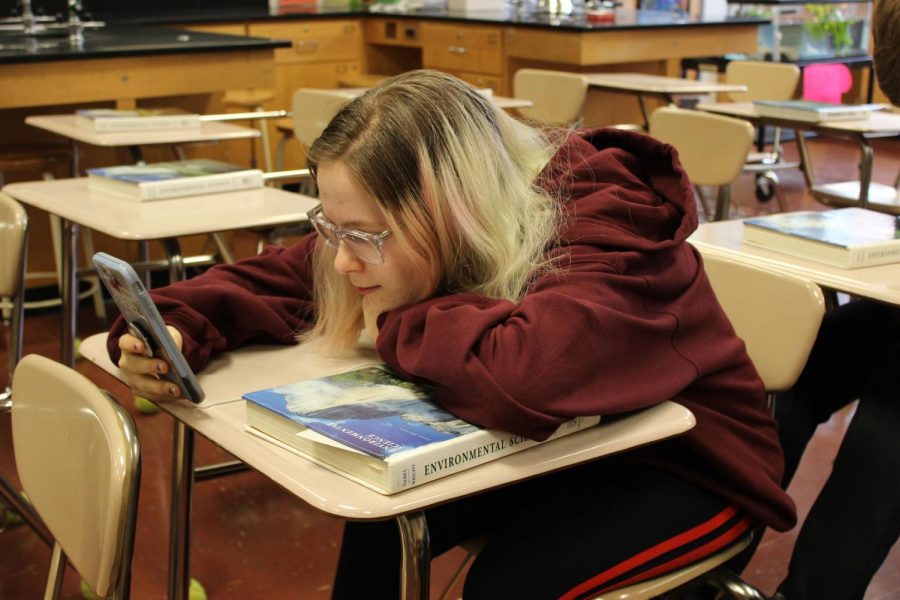Stop distributing textbooks: A textbook case of wasting resources
Junior Gwen Arbetman sits in her 3rd period APES classroom. Unlike in many classes, students in AP Environmental Science use textbooks fairly often to complete assignments.
January 19, 2019
Rewind to the beginning of the year: it’s time for teachers to pass out textbooks, and we all know the routine. Teacher after teacher hands out a ridiculously heavy book to lug around all day, and when you get home you either stack the books together in a drawer or drop them somewhere random in your house. Then you leave them there; teachers usually use the textbook so sparsely that you forget it even exists.
Now that most textbooks are accessible online, it’s not necessary for teachers to give out print versions annually. MCPS should encourage the use of online textbooks because print versions are often barely integrated into class curriculums, and switching to online versions would eliminate the costs of purchasing new print books every few years. It would also eliminate the environmental impact MCPS generates from purchasing new print books frequently.
Most classes don’t require students to complete problems in the textbook, and even for those that do, an online textbook is almost always adequate. In an informal survey of 33 students, 24 said they don’t use more than one textbook for schoolwork on a regular basis. Since students don’t use textbooks often, they can easily lose them. This creates a logistical nightmare at the end of the year, with teachers scrambling to account for all textbooks distributed and students left with costly obligations.
Along with being unnecessary in general, purchasing new textbooks is expensive for the county. Print versions of textbooks often become outdated and need to be replaced every few years. Just last year, MCPS purchased new textbooks for all AP NSL classes, which cost them a total of around fifty thousand dollars, according to Whitman business administrator Elizabeth Hillard.
Eliminating print textbook use would also help the county reduce their environmental impact. One AP Psychology textbook has almost 700 pages, not including the appendix, and with most classes requiring at least 28 textbooks for a class set, this amounts to a huge quantity of paper that could be conserved by using online textbooks.
For the few classes that do heavily rely on textbooks, only having an online version could be an issue for students who don’t have internet access at home. However, this could be easily solved by purchasing a few textbooks for each class; this way students could opt to have a hard copy if needed, and MCPS wouldn’t waste money and paper on new textbooks for every student.
Purchasing new paper textbooks isn’t worth the toll on the county budget and environment when online versions are readily available. In fact, it’s a textbook case of a waste of resources.









